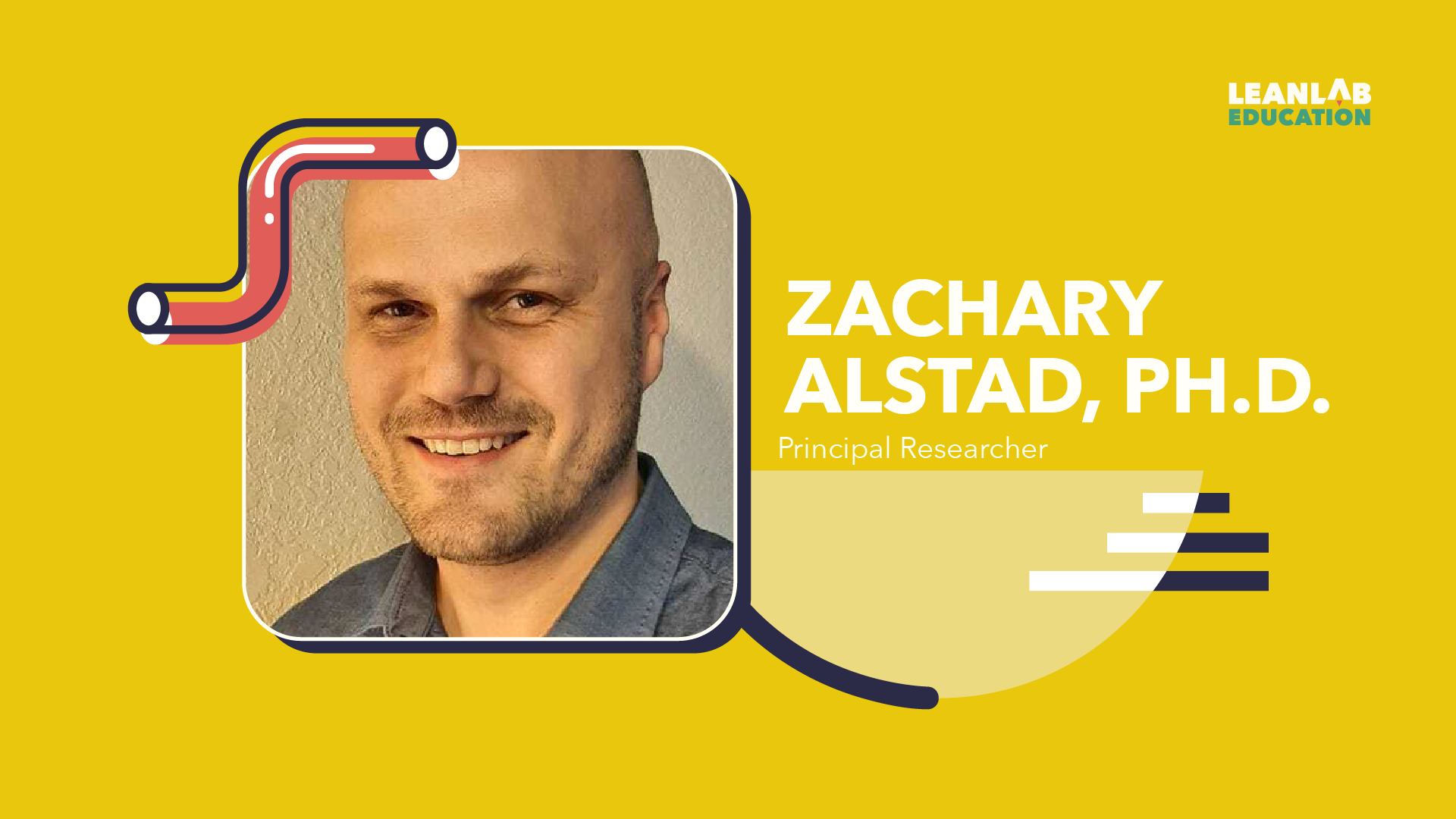NAME
Zac Alstad
ROLE
Principal Researcher
BIO
Zac brings over 15 years of expertise in educational research, focusing on how technology can be designed and evaluated to support diverse learners in real classroom contexts. As Principal Investigator on an NSF-funded project, Zac has integrated mixed methods and human-centered codesign to drive iterative innovation in educational technology environments, particularly those serving neurodiverse students. Technologies he has explored include AR, VR, and, more recently, generative AI systems. At Leanlab, Zac advances codesign practices that ensure AI-powered educational tools are effective, trusted, and equitable. He believes that meaningful educational technology innovation begins with shared power, and that when students and teachers are central to research design, solutions become more usable, responsive, and inclusive.
In his free time, Zac enjoys spending time with his family, hiking, travel, and snowboarding.
WHY I GRAVITATE TOWARD THIS WORK…
This is the most exciting time in history to be a part of the learning sciences. The developments in the foundation models have provided a variety of new avenues for participation for people who have previously been excluded from educational systems. Many times, this exclusion has been related merely to the media format that has been expected of students. When my grandfather went to school, you needed to be able to handwrite perfectly in order to participate at all. Students who could not do this were systematically excluded, and often labeled “stupid”.
Slowly at first, and now all of the sudden, technology tools have grown to change how students can participate. First, word processors, then spell check, then grammar checkers, then voice dictation and now large language models—each of these has provided students with new ways to express themselves without being excluded for difference in ability to perform one specific task. Moreover, those that use other languages, dialects and underrepresented cultural perspectives may also find new ways in. The prospect of these systems being used more widely then could yield a golden age of participation for those that express themselves differently.
Concomitantly, widely available generative tools that can replace sincere student effort and engagement also are a frightening prospect. Many teachers are finding that their students are using LLMs to complete homework and are struggling to find ways to meaningfully incorporate these new tools into both their own and their students' workflow. Traditional methods of educational evaluation may be dead... And maybe this is a good thing. I am excited to see how, through creativity and compassion, we can remake education with these immensely powerful tools to facilitate learning and inclusion in ways that we previously thought impossible.
FUN FACT
I love to travel and have visited more than 30 countries.

